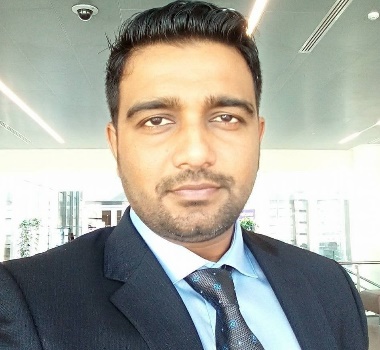
Prof. Hardik Jeetendra Pandya
IISc BangaloreBiodata (Self Introduction): Dr. Hardik J. Pandya is an assistant professor in the Department of Electronic Systems Engineering, Division of Electrical Sciences, IISc Bangalore where he is developing Advanced Microsystems and Biomedical Devices Facility for Clinical Research and Biomedical and Electronic (10-6-10-9) Engineering Systems Laboratory to carry out cutting-edge research on novel devices to solve unmet problems in biology and medicine. He is recipient of prestigious Early Career Research Award from Science and Engineering Research Board, Government of India as well as a start-up grant of 228 Lacs from IISc. He has taught Design for Analog Circuits, Analog Integrated Circuits, VLSI technology, and Semiconductor Devices to undergraduate and graduate students from Electronic Engineering, Instrumentation Engineering, and Applied Physics. He seek to understand and exploit novel ways of fabricating microengineering devices using glass, silicon, polymers and integrate with unusual classes of micro/nanomaterials. His research interests include integrating biology/medicine with micro- and nanotechnology to develop innovative tools to solve unmet clinical problems. His current research focuses on flexible sensors for smart catheters, microsensors, microfluidic devices, and microelectromechanical systems, all lately with an emphasis on cancer diagnosis, therapeutics, e-nose, and biomedical device technologies. Before joining IISc, he worked as a postdoctoral scientist in the Department of Mechanical Engineering, Maryland Robotics Center, University of Maryland, College Park and in the Department of Medicine, Brigham and Women’s Hospital–Harvard Medical School affiliated with Harvard-MIT Health Science and Technology. His work has resulted in several patents and publications. His work has been highlighted as “Breaking Research News” by The Physicians Committee for Responsible Medicine and has been featured on IEEE Transactions on Biomedical Engineering July 2016 issue cover image as well as IEEE TBME July 2016 feature article for the website and monthly highlights. The work on portable cancer diagnosis tool was also featured on Science Translational Medicine as an Editorial Choice, Breast Cancer Diagnosis, March 2016 and has been highlighted on CapeRay blog as “Biochips and Diagnostic tools” in April 2016. His work has been published in high-quality journals including Lab on a Chip, IEEE Transactions on Biomedical Engineering, IEEE Journal of Microelectromechanical Systems, Sensors and Actuators B, Biosensors and Bioelectronics, Nanoscience and Nanotechnology Letters, Sensors and Transducers, and Journal of Micromechanics and Micromachining.

DOWNLOAD APP
FOLLOW US